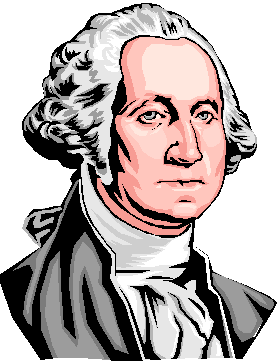The Politics of Education

As On liners can see from the blurb below, I wrote this where I taught a long time
ago to the district superintendent for the express purpose of warding off “get tough,”
autocratic process of assessing teachers because administrators aren’t really trained
thoroughly on that score — I have the feeling even less so today in many schools. You
will see how difficult it is to evaluate teachers, let alone an entire school. This current
fetish for tests won’t do it for the simple reason they are administered with vengeance. Tests, not
unlike teaching, are unique, for they are designed to meet the level and capacity of the students in
the learning process. They are not meant to show how stupid the child is or how bad the school is.
For instance, a 3rd grade test cannot be universal in competence levels for the reason that each child
is laced with unlimited variables both individually and demographically. A state competency test in
Great Neck should not be the same as one for  Amityville or Schenectady. Even in the old days NY
Regents secondary level tests were not meant for all students; they were designed to evaluate the
potential for higher learning. The so-called “general diploma” made the lesser students proud of their
accomplishments because they realistically accepted their capacity, yet many late bloomers continued
their education at night or enrolled in a community college. General tests today are a throwback to
IQ tests designed to humiliate the student, rather than to motivate him or her to do better the next
time. The tests in question now is to humiliate the entire school and blacklist it as failing, which is
counterproductive because it brands the student and school personnel as dummies. What does this
do to the students and teachers who like their school and simply wish that the community come to
its aid in the way of better resources? — financially and parentally.
Amityville or Schenectady. Even in the old days NY
Regents secondary level tests were not meant for all students; they were designed to evaluate the
potential for higher learning. The so-called “general diploma” made the lesser students proud of their
accomplishments because they realistically accepted their capacity, yet many late bloomers continued
their education at night or enrolled in a community college. General tests today are a throwback to
IQ tests designed to humiliate the student, rather than to motivate him or her to do better the next
time. The tests in question now is to humiliate the entire school and blacklist it as failing, which is
counterproductive because it brands the student and school personnel as dummies. What does this
do to the students and teachers who like their school and simply wish that the community come to
its aid in the way of better resources? — financially and parentally.
My point with respect to the current legislative bill is that it is indeed “fraudulent” — aptly put by some democrat senators — reform without ample resources for a holistic approach to the educational scene. Everyone knows that 90% of the schools in the country do reasonably well — surely, much better with an infusion of incentives for student and instructional personnel, together with modernization— for there is no cry for vouchers and charter schools. Everyone knows that the worst conditions of inner city, and poorer suburban and rural districts are a result of indifference ever since the war on poverty took a nosedive. Even with resources these districts are never going to be the best because professionals follow the money. But with a revival of the true intent of Title I, and with massive economic and professional assistance to poor districts eventually they will become better.

I'd like to know who came up with the detestable phrase "failing schools", a dastardly cop-out when in reality it is a failing Senate lacking profiles in courage. I was shocked when my hero Ted Kennedy even used the phrase and that therefore “choice” would be considered. [I guess Barbra Streisand is right in taking the Democrats to task.] These schools are not failing schools; they are courageous schools that do their very best with what little they have. Again, everybody knows that! The dishonesty that prevails in politics is shameless. No child is to be left behind is the worst kind of perjury! The gimmick of choice and vouchers is geared precisely to see to it that the child is left behind so that parents are forced into a contract they cannot afford with a so-called performance school for profit. This is just the beginning of the “vast right-wing conspiracy” to scandalize and destroy city schools and then end public education altogether — in reality, the ultimate goal is to wipe out tax for all but national defense. Since Reagan, the total erosion of federal tax has proportionately raised havoc with state and local taxes — again, everyone knows that. And for twenty years with the majority of state voters completely obfuscated, the governors in lock-step followed the lead of their “great communicator” by patting themselves on the back for cutting taxes while shafting the property owner and thus the schools. And to insure the longevity of this sinister plan, you can bet on sudden amnesia for vote reform.
Reagan being Irish was able to charm the sox [red?] off Tip O’Neill; but what’s Kennedy and Daschle’s excuse? There should not have been room whatsoever for compromise on the tax-cut. Daschle came out smiling with an absurd $1.2 trillion “victory”! Give me a break! — deja vu! falling into the same Reagan trap whereby the Democrats were forced into increased spending for social services despite the humongous, amoral tax-cut, and, of course, now as then face the brunt of blame. Where was the civility from the opposing party when Clinton was in office? So why the saccharine civility now? Stand up for public education as an inalienable right to an enlightened future.
October 15, 1975
Re.: Board’s Evaluation Policy
The board of education has the right to expect the staff to be evaluated; however, I question its rationale as well as the district’s approach to evaluation.
The first proposition that evaluations supply the teacher with information necessary for his or her self-growth is grounded in an implausible assumption that the evaluator is capable of furnishing the evaluatee with critical data. This is a vestige of early twentieth century thinking when administrators were principal teachers and headmasters. Though asperity is not to be implied here at home, all too often administrators had absconded from the classroom early in their teaching career. Unless one has ties to the classroom — has been trained in the supervision of articulated curricula or has demonstrated curriculum leadership, and is thus presumably in command of the threads woven into the entire program, and has as an administrator established a sustaining rationale throughout his building — he had better not meddle with the instructional scene observed as isolated pockets in a classroom. The preference is to leave assessment to the experts by encouraging sustained peer evaluation among clusters of teachers who have proven themselves a thousand times over.
In the case of new or non-tenure teachers, the evaluative process should be clinical or close-up supervision aimed at developing professional potential. This might be effected by a “master” teacher corps in conjunction with a substantial block of administrative time for the principal to be “close-up” to the process and the individual.
Nor is the situation necessarily any different in high school, owing to a nexus of department “chairmen.” To expect one person to impose or assess standards of excellence is totally inappropriate to an autonomous profession. Departmental conferences on curriculum study and revision, together with sharing methodologies and lesson units would be far more effective than a one shot autocratic visitation.
The second proposition, that ostensibly aids the Board's decision-making in staffing and placement, again is based on a fallacious assumption: classroom management as opposed to the instructional process is the desideratum to placement. The administrator enters the classroom armed to the teeth with trite prescriptions — physical appearances, learning styles and atmosphere, control and command, interaction, rapport, the art of questioning, verbal domination, the art of illustration and explanation ad infinitum — and still not be capable of grasping the subtleties of classroom dynamics, a continuous, interdependent process and as private as the relationship between physician and patient. The instructional process is so subtle and results so intangible that an evaluator would have to be a teacher’s alter ego on a full time basis in order to apprehend that X quality of teaching. More important the Board is admitting that it is willing to make decisions on surficial reports from annual visitations in lieu of availing itself of advisement from an apolitical committee of the profession’s members and administrative core.
The ineffective teacher will undo himself not by incompetence but by an eroding attitude toward those he teaches. Competence in virtue of tenure and/or license is already blazoned by intellectual and professional integrity from university, state, and school district. Nurturing assimilation to practice and espousal of the district’s philosophy, together with developing competence to the point of proficiency, is the responsibility of the administrator and facilitator of curriculum, but rare indeed is he if he succeeds alone without strategic staff deployment. The minuscule number that slips by the state education’s license division is soon discovered, precluding much ado about nothing. What is needed is a functioning and informal review board of peers and administrators not to assess but rather to encourage teachers to broach the unknown, to want to teach, not how to teach.
As had reported [to you] some two years ago, a principal and his staff must develop an awareness of the total instructional program by studying specific course outlines from each of his teachers, if he is to coordinate a hierarchy of learning or logical progression of learning skills; and by visitation check points he is able to determine whether or not class activity is commensurate with long range goals.
This necessarily rules out class visitations as we have experienced them. They have been essentially to determine that the teacher measures up to "competence." Under this proposal it is the curriculum itself that should measure up or go back to the drawing board. These visitations, then, would be definitely less autocratic, less the superordinate-subordinate syndrome, more a democratic workshop, colleague to colleague working together to salvage or overhaul; or simply to enjoy the smooth interaction of a sound program. In short, the administrator is a morale agent projecting outside the threatening role with respect to students and teacher.
This is not to say that the principal has abdicated his authority; on the contrary, if teaching is indeed a profession, teachers must be committed to self-improvement and stand ready to justify their curriculum pursuits by presenting annual reports on the success level of their teaching approaches and be prepared at any given time to subject their course of study to a principal’s audit, which should include a professional team if the teacher requests it.
Only through an egalitarian spirit and reciprocity in areas of expertise will effective behavior emerge as the prevailing action of this district. The propositions should therefore read:
• The evaluative process is designed to assess the teacher’s intellectual growth that is directly and indirectly tied to the growth of their students.
• This is realized by open interaction with students, faculty, and the administration. It provides the board with some key actions and characterization in the field that may apply to placement.
• The Board is naturally and primarily concerned with the instructional program and is consequently interested in understanding events in the classroom.
• Ultimately the Board is interested in developing an autonomous in-service program to encourage teachers and administrators to be ever vigilant to curricular change and improvement.
.Author's
collection of nonfiction  http://http://www.lulu.com/spotlight/rrksr
http://http://www.lulu.com/spotlight/rrksr